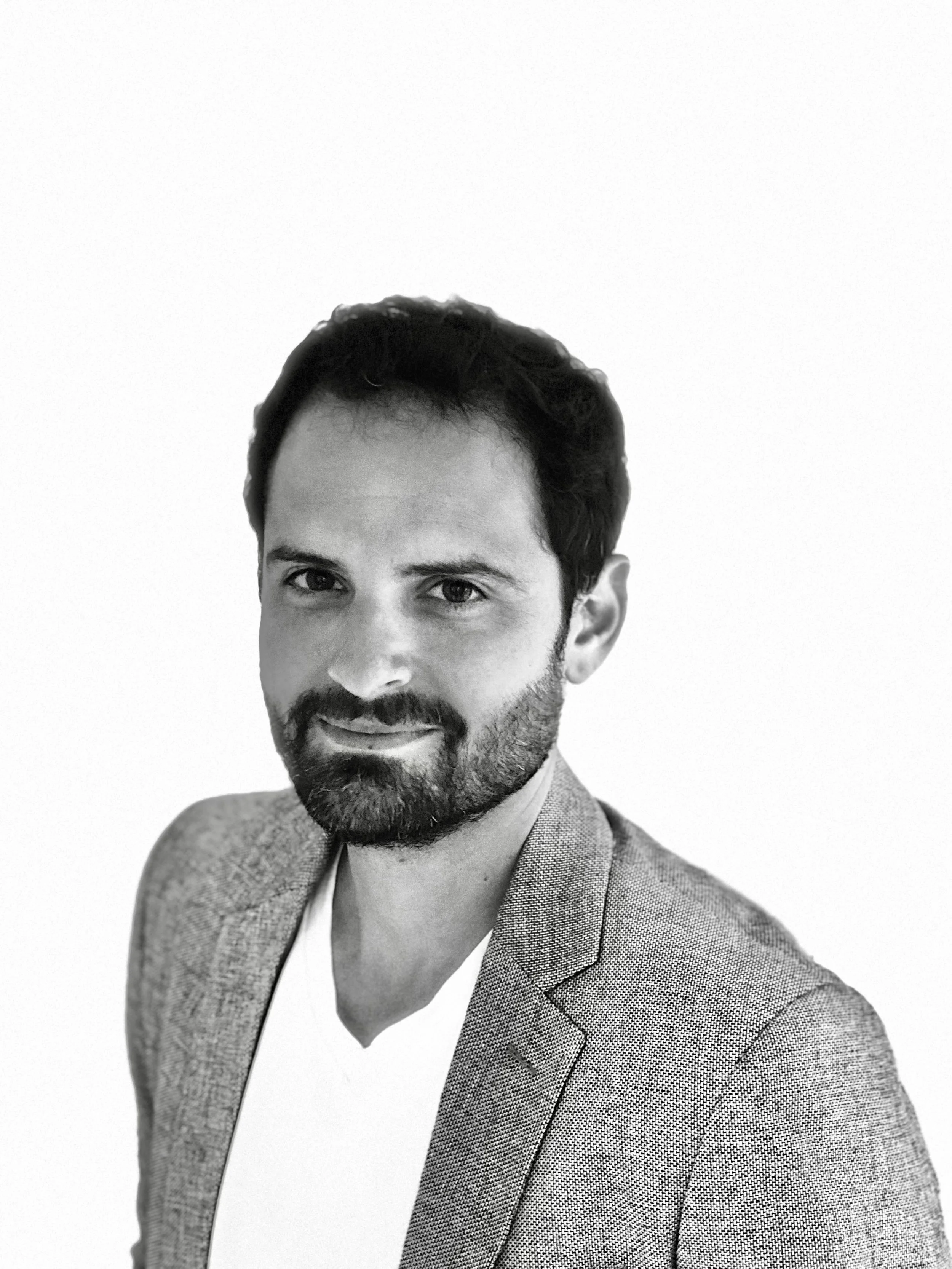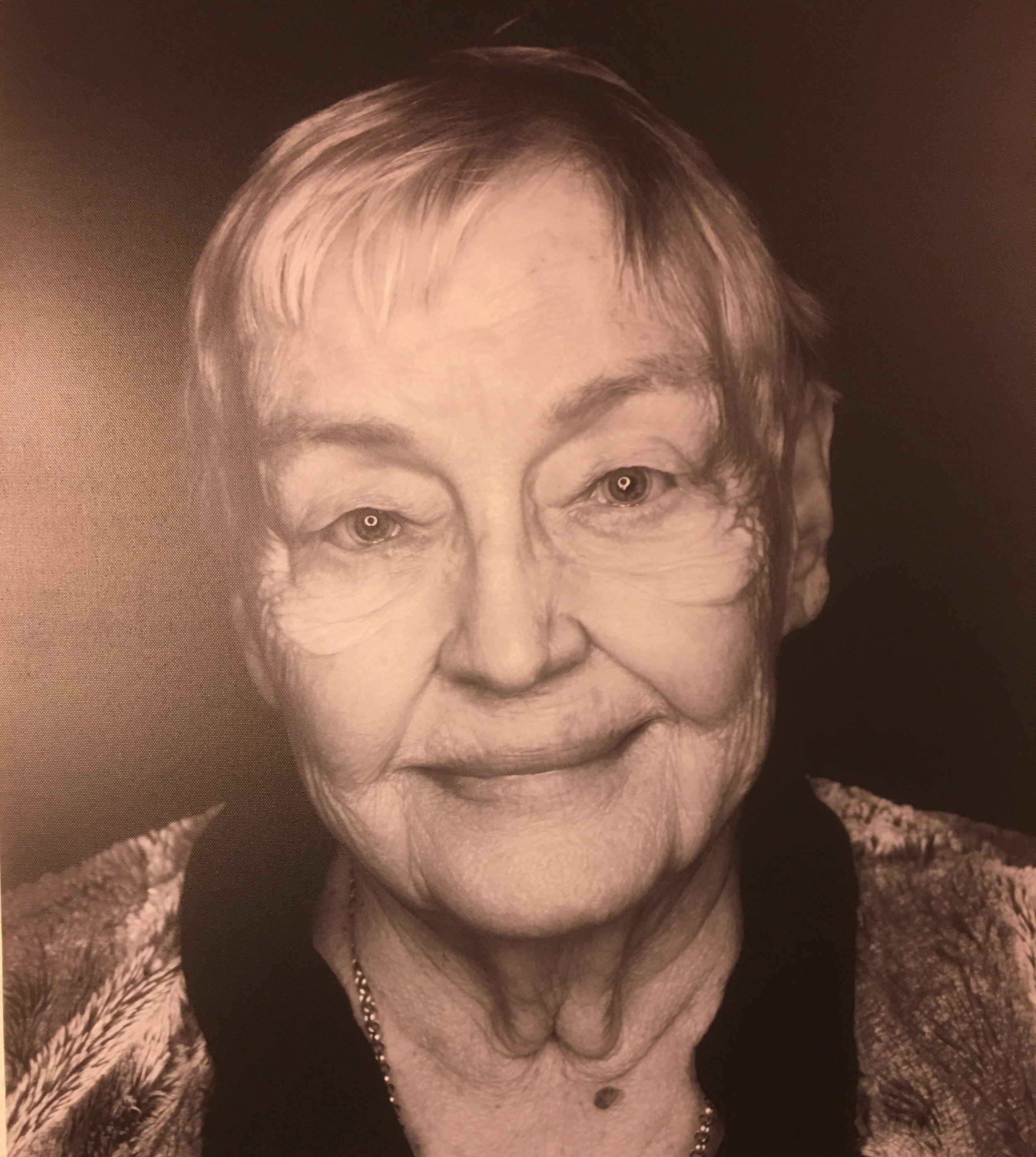Taking an historical view of men’s mental health: an interview with medical historian Ali Haggett
It’s all too easy to think that the way we see things today is the way things have always been seen. In almost every realm that way of thinking is a mistake, and this is no less true when it comes to men’s mental health. Indeed, as medical historian Dr Ali Haggett demonstrates, how we see men’s mental illness – and indeed how we fail to see men’s mental illness – has had a huge impact on men’s wellbeing over the years. Despite the human significance of these insights, experts in this field are a rarity. So how does somebody come to be interested in topic like this?
John Barry [JB]: What attracted you to studying the History of Medicine and becoming a Medical Historian?
Ali Haggett [AH]: I took a third-year module as part of my undergraduate History BA. I was a mature student, rediscovering education after having children and I connected instantly with topics reflecting on life and death, health and disease. I think being a bit older and having worked in other jobs prior to returning to university gave me a useful perspective. It was clear to me immediately, that the History of Medicine was where I wanted to specialise. I was particularly drawn to the history of psychiatry and mental illness and was lucky enough to be awarded Wellcome Trust scholarships for my Masters in the History of Medicine and my PhD.
JB: You wrote the book A History of Male Psychological Disorders in Britain, 1945-1980 (Mental Health in Historical Perspective). Why did you choose to focus on this area and how did this book come about? Also, what has the reception to your book been like?
AH: I’ve learned that one research topic often emerges from another. My doctoral work explored the subject of neuroses (as it was known then) in middle class housewives during the 1960s and 1970s – a topic popularised by the American Betty Friedan’s study, which was written up as the famous book The Feminine Mystique, in which she argued that housewives experienced mental illness due to the boredom and stultification of the domestic role. My work on U.K. housewives suggested that, although there was a good deal of psychological illness (and overprescribing of first-generation psychotropic drugs), problems were most often due to past trauma, unhappy marriage – or other challenging circumstances. The domestic role itself, and the idea that men and women were ‘equal but different’ was looked upon as favourable by housewives themselves. The findings are set out in my first book, Desperate Housewives, Neuroses and the Domestic Environment, 1945-1970 (2012).
“I was left with no doubt that men were struggling in myriad ways with stress and psychological illness – yet it has always been the discourse of the ‘desperate housewife’ that has attracted the most publicity, both in medicine and popular culture”
What was most interesting, was that many of the women I interviewed for the project remembered being concerned about their husbands’ health. Often, they recalled husbands drinking too much alcohol, sleeping badly and self-medicating with over-the-counter drugs for indigestion. This theme emerged so consistently that I when I completed the project, I was left with no doubt that men were struggling in myriad ways with stress and psychological illness – yet it has always been the discourse of the ‘desperate housewife’ that has attracted the most publicity, both in medicine and popular culture. The questions for my subsequent project on men were framed by my doctoral work and led to the book on male psychological illness. In that study, I focused on the ways in which psychological illness in men presented in general practice; mental health at work; alcohol and coping; and drug-prescribing patterns in men. Ultimately, I argued that psychological illness was no less common in men, but it emerged in complex ways and was understood differently in response to prevailing medical and cultural forces. The book has been pleasantly well-received.
JB: During your time studying at Exeter, you spent some time getting involved with issues affecting men. Can you tell us a bit about this and what got you involved?
AH: The project on male psychological illness coincided with the emergence of the impact and engagement agenda in higher education. One of my passions has always been the ways in which history can inform current debates, and I had always felt a need to make my research more relevant to policy and more broadly in the community. I would argue that the curriculum in humanities was, and still is, heavily influenced by the feminist agenda, and increasingly I became concerned about persisting cultural assumptions about gender and psychological illness. While women are diagnosed with the most common mental disorders twice as often as men, the suicide rate in men is three times that in women. The male suicide rate horrified me, and I had witnessed it myself in my own academic and personal circles. I also have two sons and two stepsons – we were witnessing their challenges in real-time, as the unhelpful rhetoric of toxic masculinity gained prominence over the last decade.
“These groups were central to my decision to leave academia and work in the community, where I feel my impact is more tangible and immediate. The work is all about social connection and the astonishing power it has to increase wellbeing. I have noticed that no one identifies the group with their particular 'health problem'. […] Using sport as a hook is useful, because it lacks any kind of stigma related to a 'support group'.”
I was lucky enough to have a budget for public engagement, and, over a five-year period, I worked with many local charities, gyms and other organisations raising the profile of men’s mental health. I also ran a ‘Grand Challenge’ project for students every year, in which we encouraged them to work outside the university with mental health charities and in lived-experience circles. We were pleased to welcome several well-known personalities to speak about their own mental health. Alastair Campbell, Tony Blair’s former Director of Communications and James Rhodes, concert pianist and author of Instrumental: A Memoir of Madness, Medication and Music, both came and spent generous time with our students. The Labour MP for North Durham, Kevan Jones, joined us for a panel discussion at Exeter, to discuss the experience of being one of the first MPs to speak openly about their own challenges with depression. A ‘summit’ on men’s mental health at Exeter City Football Club in 2016 – led by a keynote speech from the former premier league footballer Clark Carlisle – was a springboard for many connections and projects in Devon and was the impetus for our ‘Sporting Memories’ groups.
JB: Your current work involves running men’s groups. Can you tell us a little bit about why and how you started these up? What is it about these groups that works?
AH: Following our event at Exeter City FC, I partnered with Exeter City Community Trust, and the Sporting Memories Network to roll out Sporting Memories groups in Devon. These groups are aimed at men over 50 who, for whatever reason, might have found themselves isolated or in need of social connection. We use memories of sport to stimulate engaging conversations, foster new friendships and signpost other services. These groups were central to my decision to leave academia and work in the community, where I feel my impact is more tangible and immediate. The work is all about social connection and the astonishing power it has to increase wellbeing. I have noticed that no one identifies the group with their particular 'health problem'. Men come along with a wide range of conditions such as: motor neurone disease (MND), Parkinson's, disability, stroke and psychological illness. Some are recently bereaved, and others are generally fit, but enjoy the opportunity to joke and banter, perhaps missing former times at the match or in the pub. Using sport as a hook is useful, because it lacks any kind of stigma related to a 'support group'.
“Those already socially isolated found that lockdown restrictions removed their only means of social contact. […] The fear of contagion, serious illness and death, driven by the Government and media, undermined confidence and security. I feel strongly that there must be balanced research into the impact of lockdown […] so that any decisions made in future pandemics are based on sound risk/benefit analysis.”
The pandemic hit many of our group members hard. Those already socially isolated found that lockdown restrictions removed their only means of social contact. Ancillary and enabling services were abruptly withdrawn, exacerbating psychological and physical health problems. The fear of contagion, serious illness and death, driven by the Government and media, undermined confidence and security. I feel strongly that there must be balanced research into the impact of lockdown on those who were already disadvantaged by disability and poor health, so that any decisions made in future pandemics are based on sound risk/benefit analysis.
JB: You have retrained as a kinesiologist; can you explain what this is and how you got into it?
AH: My own health was pretty poor from the demands of full-time academia and caring for elderly parents! From my academic research, I was concerned about the medicalisation of stress, the interventionist model of medicine and the increasing domination of pharmaceutical approaches. I was interested in finding something that would emphasise prevention and examine root causes. Complementary techniques have long been side-lined and discredited, yet there is good evidence that some approaches could augment and support practice of allopathic medicine. Kinesiologists work primarily with the muscle-testing (or muscle ‘monitoring’) technique, which gives biofeedback about the subtle energy systems in the body. Where imbalance is found, we use a range of balancing techniques to restore energy pathways in the body. These tools include neurolymphatic massage, neurovascular and acupressure holding points and meridian tracing.
“Tension, poor sleep, burnout, poor relationships and other stress-related issues often present in physical aches and pains. […] Given [the focus of kinesiology] on muscle testing and letting the body do the ‘talking’, it’s a perfect technique for anyone who might be reluctant to seek psychological talking therapy.”
Kinesiology developed originally from the fields of orthopaedics and physical therapy. It is a gentle and supportive technique empowering clients to make changes to choices, attitudes, actions and goals. Given my academic background, I was keen to find an approach that had some basis in scientific research, and there is now increasing scientific support and recognition for kinesiology, the clinical principles of which are set out in Charles T Krebs PhD, and Tania O’Neill McGowan’s Energetic Kinesiology, Principles and Practice (2014).
JB: How much do you see people for stress-related physical problems? Given that in general men are less keen on talking therapies than women are, is kinesiology, being less about talking about feelings, a more male-friendly way of helping with these problems
AH: I would say that stress plays a key role in many of the issues. Tension, poor sleep, burnout, poor relationships and other stress-related issues often present in physical aches and pains. Kinesiologists do not diagnose or treat illness, and always advise that any symptom is first examined by a doctor. However, the techniques we use to balance the body’s energy systems help promote healing, and empower clients to make positive choices and move away from unhealthy patterns. We also have a toolbox of simple self-help, balancing techniques for pain, stress and fatigue which can be used at home and shared with family and friends.
“Historically, the heated political climate of the mid/late twentieth century emphasised gender inequalities against women in the social system. […] These priorities obscured any challenges faced by men, which were less ‘visible’ and therefore less well understood. Today, focus on men’s wellbeing has again been distracted by the powerful rhetoric of toxic masculinity”.
Given its focus on muscle testing and letting the body do the ‘talking’, it’s a perfect technique for anyone who might be reluctant to seek psychological talking therapy. However, the therapy is still not well-known, and many people have not heard about it. We hope that, given the increasing discontent with orthodox pharmaceutical medicine, the value of alternative approaches will soon be appreciated. I have noticed, reflecting trends in psychotherapy, kinesiology therapists tend to be female. It would be good to attract more male therapists! I ran some simple sessions on Zoom over lockdown for our Sporting Memories members. There were some pleasing results as some found relief from anxiety, pain and tremors from holding acupressure points. The approach definitely needs to be promoted more widely.
JB: Your research into men's mental health has provided some key insights into the different discourses surrounding female and male mental health experiences in times past. Have you been able to draw any key comparisons with the way men’s mental health was thought about in the past and in our present time? Do you think we have a better understanding of men’s mental health today than we did in the past?
AH: Certainly, thanks to the great work of the Centre for Male Psychology, and it’s forerunner the Male Psychology Network, and indeed other third sector organisations, there is now increased awareness of the problems that are specific to men – and positive developments in male-friendly services. As a medical historian, my findings suggested that men from the 1950s associated psychological problems with weakness and stigma; alexithymia and somatisation were commonplace. The resulting physical complaints were labelled as medical problems, and psychological problems were underplayed. My experience of working with men indicates that despite great efforts, these problems persist.
“I feel that if three-quarters of all suicides were in women, there would be an outcry. I agree with some of the authors featured here who have argued there is now an empathy gap”
Historically, the heated political climate of the mid/late twentieth century emphasised gender inequalities against women in the social system. It also uncovered cases of misconduct against women from within medicine and psychiatry. These priorities obscured any challenges faced by men, which were less ‘visible’ and therefore less well understood. Today, focus on men’s wellbeing has again been distracted by the powerful rhetoric of toxic masculinity and the repercussions from the #metoo movement, which suggests that women are ‘at risk’ everywhere.
JB: What changes would you like to see in how society approaches men’s health and wellbeing in the future?
AH: I’m still surprised about the general lack of awareness about male suicide. Many people outside the psychological sciences are still completely unaware. I’m frustrated about the lack of outrage, and, although it might be controversial, I feel that if three-quarters of all suicides were in women, there would be an outcry. I agree with some of the authors featured here who have argued there is now an empathy gap, and that feminist agendas have had the unintended consequences of promoting gender prejudice towards men.
“As a former academic, a therapist and a mother, I’m extremely concerned about the demonization of men and masculinity. I’m grateful that my work was generously funded by the Wellcome Trust. I am, however, uncertain that the same body of work would be funded now.”
Having left academia and worked for quite some time in a community setting, I reflect on the powerful influence of social constructionist theories, which dominated my education through the humanities. Of course, all ideas are, to some extent shaped by contemporary social conventions; however, my feeling is that by denying the flow and rhythm of nature and its universal laws, we are causing much pain.
As a former academic, a therapist and a mother, I’m extremely concerned about the demonization of men and masculinity. I’m grateful that my work was generously funded by the Wellcome Trust. I am, however, uncertain that the same body of work would be funded now. The diversity and inclusion agenda has made it increasingly challenging to fund work highlighting issues affecting men.
JB: Do you have any new projects on the horizon you would like to tell us about?
AH: I’m currently researching a book which will trace the origins of our modern medical paradigm; the politicisation of health; the influence of big pharma; the problems with evidence-based medicine; and the opportunities to be explored by a preventive, holistic approach to health. There will be a gendered aspect to this.
Final thoughts
Dr Haggett’s insights into the historical shifts in how we view men’s mental health leaves me aghast at how much we have misunderstood over the years and how little of the whole people we ever see. It makes me think of two drunks on a seaside pier, fighting over who gets to look through the telescope before the 5p runs out. One of them looks through the wrong end of the telescope and minimises everything he tries to see. The other drunkenly points it at the sky and misses the view completely, apart from what images he projects upon the shapes he sees in the clouds. The fuss made by the drunkards gets all the attention of the other people on the pier, but Ali Haggett is the person there who stands alone, soberly taking in the view, making notes, hoping others will some day read them.
Biography
Dr Ali Haggett spent ten years as a medical historian at the University of Exeter. Her research was on the history of gender and psychological illness, focusing latterly on the history of men’s mental health. She now facilitates Sporting Memories groups in Devon and writes/publishes independently on topics related to health and wellbeing. Contact Ali Haggett here.
Scroll down to join the discussion
Disclaimer: This article is for information purposes only and is not a substitute for therapy, legal advice, or other professional opinion. Never disregard such advice because of this article or anything else you have read from the Centre for Male Psychology. The views expressed here do not necessarily reflect those of, or are endorsed by, The Centre for Male Psychology, and we cannot be held responsible for these views. Read our full disclaimer here.
Like our articles?
Click here to subscribe to our FREE newsletter and be first
to hear about news, events, and publications.
Have you got something to say?
Check out our submissions page to find out how to write for us.
.






















































